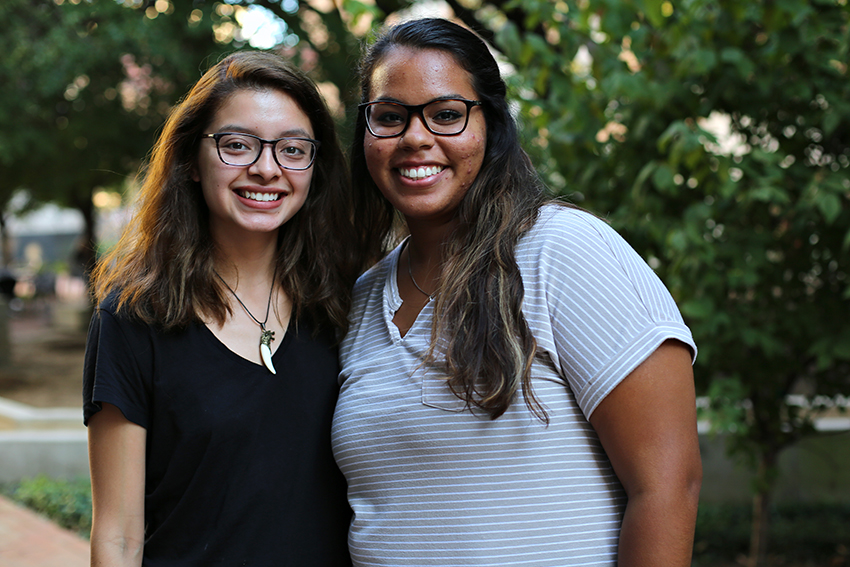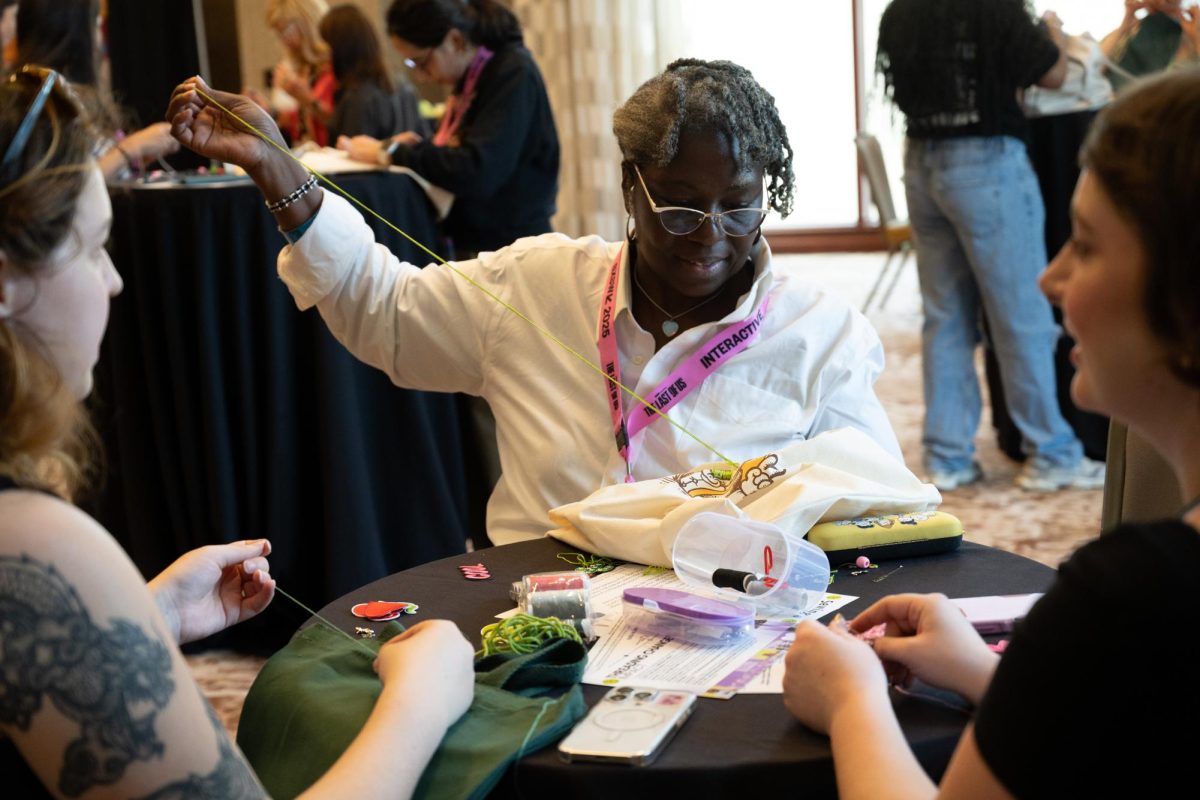When a major river on Kristian Byrd’s home reservation was accidentally contaminated with toxic mine runoff by the EPA earlier this year, she was devastated. After learning about the proposed Dakota Access Pipeline, a conduit planned to run crude oil from North Dakota to Illinois that could contaminate Standing Rock Sioux’s main water source, the civil engineering senior and Native American and Indigenous Collective co-president knew she wanted to start a conversation at UT to raise awareness about Native American water rights.
Energy Transfer Partners plans to run a 1,127-mile pipeline from North Dakota to Illinois that is projected to run through the Standing Rock Sioux tribe’s sacred lands and burial sites as well as potentially contaminate their main source of water if the conduit breaks.
Byrd said that on her reservation, most residents rely on rivers since many houses do not have running water. According to the American Indian Relief Council, many houses lack adequate water infrastructure, so people are often forced to use alternative sources like rivers. In response to the proposed pipeline, ReZpect Our Water, a movement that opposes the construction of the oil conduit, began protesting at the construction site in early August of this year.
A protest unaffiliated with NAIC will be held on campus in solidarity with ReZpect Our Water Sept. 24, the same day as the Texas Tribune Festival, which will be hosting some of the biggest names in Texas politics. Similarly, NAIC will be holding a workshop Monday to discuss the issue. Since the protest is not being heavily covered by major news organizations, the workshop aims to educate students about native people’s water and land rights.
Yasmeen Davila, NAIC co-president and history and economics junior, said she also feels strongly about the Dakota pipeline because it continues a history of oppression against native peoples. She hopes the workshop will raise awareness about the issues Native Americans still face in the U.S.
“We hold workshops so people know about issues that are not only happening here, but just that we are still living in a period of colonization,” Davila said. “People are still being displaced and not treated well. These people were here before anyone. It’s really important to gain that visibility, to say that they’re still here even with that whole assimilation thing, they’re still here and present and fighting for their rights.”
Byrd also recognizes the contradictory nature of the conflict at the Standing Rock Sioux reservation.
“You see how the government doesn’t want to destroy any historical things or any burial sites when it comes to ‘American’ history, but the pipeline is looking to go through a lot of historical parts of the land and even burial sites,” Byrd said.
However, Byrd said water rights are just the tip of the iceberg when it comes to issues that plague reservations. Raised by grandparents who grew up on Navajo land, she knows how tough it can be to live there.
“Not only is water an issue on the reservation, it’s visibility, too,” Byrd said. “We’re kind of pushed away. Education isn’t that good, alcoholism is a horrible thing happening there [as well as] violence. It’s hard to see that not being there.”
Alex Sherwood, who is organizing the “Texas Stands with Standing Rock” protest, said the movement is not just about water but also land rights.
“If they don’t want this going through their land, the decision should be up to them because it’s their property,” Sherwood said.
However, Davila said that the protest really shouldn’t have to happen at all.
“We’re talking about water here, you know?” Davila said. “Basic human rights. It’s not a constitutional right, you don’t have to bring government into this. You need [water] to live.















